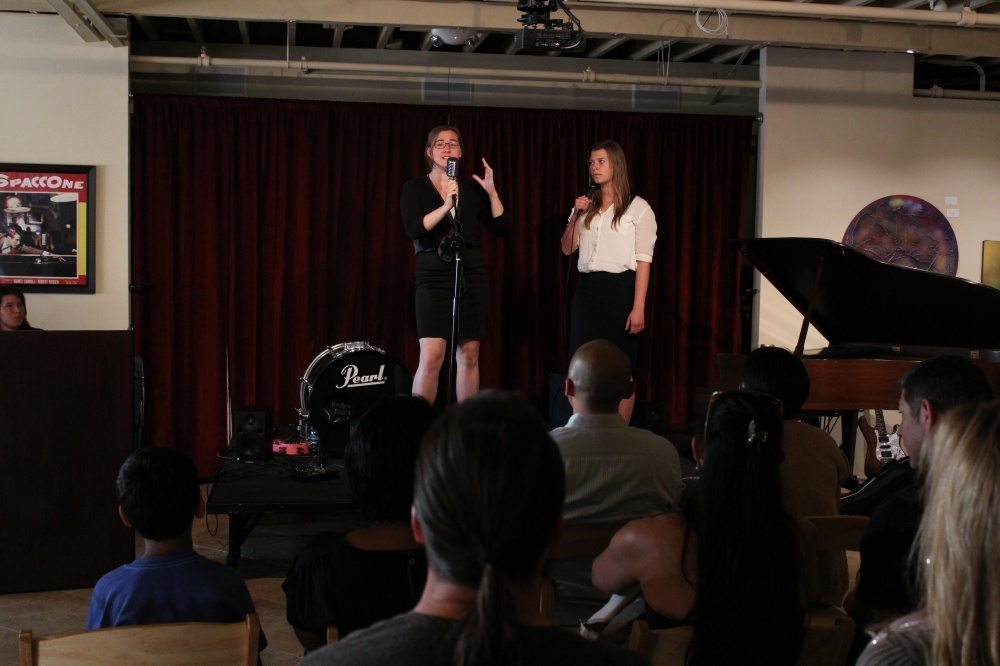The Response-Ability: Empathy in Action project created by Michelle Sadrena Clark involved over 10 teachers, 80 students, and over 100 community members in understanding connections between past and present phenomena, and using this knowledge to engage in social change. The project revolved around the experiences of refugees, the cultures they come from, and the conflicts that create their refugee status. To begin the unit, students learned about the Holocaust and were engaged with methods shared at the Memorial Library Summer Seminar. Students read Olga Lengyel’s Five Chimneys, listened to Klezmer music, and viewed photos and stories of European Jews before the war. Students also wrote creative non-fiction pieces based on Target, Bystander, Upstander, or Perpetrator experiences and created video projects with survivor testimonies relating to moments of darkness and moments of resettling on new land. These frameworks were then applied towards understanding the circumstances of current refugees living in San Diego.
The project extended far beyond the classroom walls, and in collaboration with the International Rescue Committee Peacemakers program, students met with and interviewed high school age refugees. After reading refugee memoirs and narratives, and watching video testimonies and documentaries, students conducted independent research on the conflicts leading to their interviewees’ departures from their homelands. In collaboration with the 11th grade Art teacher, students created artwork in response to their learning. The project culminated in an Arts and Poetry Festival that integrated a silent auction of the student work, musical performances, spoken word poetry, and refugee testimony. All of the proceeds raised at the event were donated to the International Rescue Committee’s Peacemaker Scholarship Program.
Michelle finds that “this project was arguably one of the most powerful and moving of my teaching career due to the real world impact of the content covered. My students came away from it with such a deep understanding of what it means to be a refugee and an increased sense of empathy toward others.” Student reflections attest to the eye-opening nature of the project. One student writes, “I have become aware that there’s so much more happening outside of what I am used to and what I know… After hearing all of these testimonies and witnessing amazing stories that I couldn’t imagine going through, I want to strive to become a better person to people who I can directly affect.” Michelle writes that “this was a transformational project for all that were involved and it was made much more feasible thanks to the financial and emotional support of the Memorial Library.”
For more Holocaust Education news on Michelle, see “President Obama Applauds the Work of Memorial Library Holocaust Educators.”
